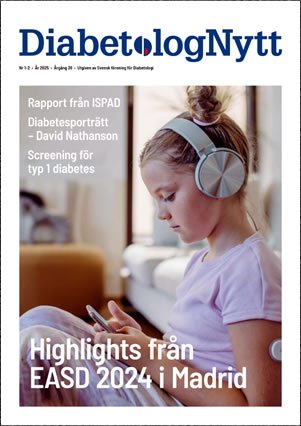Similar glycemic control as basal-bolus regimen but elevated frequency of hypoglycemia

THURSDAY, Oct. 15, 2015 (HealthDay News) — For hospitalized patients with diabetes, treatment with premixed insulin results in similar glycemic control but higher frequency of hypoglycemia compared with a basal-bolus regimen, according to a study published online Oct. 12 in Diabetes Care. Virginia Bellido, from Hospital Universitario Central de Asturias in Spain, and colleagues conducted a prospective, open-label trial in which inpatients with diabetes were randomized to receive a basal-bolus regimen with glargine once daily and glulisine before meals (33 patients) or premixed human insulin twice daily (30 percent regular insulin, 70 percent NPH insulin; 39 patients). The study was stopped prematurely at the first prespecified interim analysis because of an increased frequency of hypoglycemia >50 percent in patients treated with premixed human insulin. The researchers found that 64 and 24 percent of patients treated with premixed insulin and a basal-bolus regimen, respectively, experienced one or more episodes of hypoglycemia (P < 0.001). After the first day of treatment, there were no differences seen in mean daily blood glucose level between the groups. In 55.9 percent of blood glucose readings in the basal-bolus group and 54.3 percent in the premixed insulin group, a blood glucose target between 80 and 180 mg/dL before meals was achieved (P = 0.23). "Inpatient treatment with premixed human insulin resulted in similar glycemic control but in significantly higher frequency of hypoglycemia compared with treatment with basal-bolus insulin regimen in hospitalized patients with diabetes," the authors write. |
From http://www.physiciansbriefing.com
Nyhetsinfo
ABSTRACTS
Comparison of Basal-Bolus and Premixed Insulin Regimens in Hospitalized Patients With Type 2 Diabetes
- Virginia Bellido1⇑,
- Lorena Suarez1,
- Maria Galiana Rodriguez1,
- Cecilia Sanchez1,
- Marta Dieguez2,
- Maria Riestra2,
- Florentino Casal2,
- Elias Delgado1,
- Edelmiro Menendez1 and
- Guillermo E. Umpierrez3
+ Author Affiliations
- 1Hospital Universitario Central de Asturias, Oviedo, Asturias, Spain
- 2Hospital de Cabueñes, Gijón, Asturias, Spain
- 3Emory University Atlanta, Atlanta, GA
- Corresponding author: Virginia Bellido, virginiabellido@gmail.com.
-
E.D., E.M., and G.E.U. contributed equally as senior authors.
Abstract
OBJECTIVE Premixed insulin is a commonly prescribed formulation for the outpatient management of patients with type 2 diabetes. The safety and efficacy of premixed insulin formulations in the hospital setting is not known.
RESEARCH DESIGN AND METHODS In a prospective, open-label trial, we randomized general medicine and surgery patients to receive a basal-bolus regimen with glargine once daily and glulisine before meals (n = 33) or premixed human insulin (30% regular insulin and 70% NPH insulin) twice daily (n = 39). Major outcomes included differences in daily blood glucose (BG) levels and frequency of hypoglycemic events (<70 mg/dL) between treatment groups.
RESULTS At the first prespecified interim analysis, the study was stopped early because of an increased frequency of hypoglycemia >50% in patients treated with premixed human insulin. A total of 64% of patients treated with premixed insulin experienced one or more episodes of hypoglycemia compared with 24% in the basal-bolus group (P < 0.001). There were no differences in mean daily BG level after the first day of insulin treatment (175 ± 32 vs. 179 ± 43 mg/dL, P = 0.64) between groups. A BG target between 80 and 180 mg/dL before meals was achieved in 55.9% of BG readings in the basal-bolus group and 54.3% of BG readings in the premixed insulin group (P = 0.23). There was no difference in the length of hospital stay or mortality between treatment groups.
CONCLUSIONS Inpatient treatment with premixed human insulin resulted in similar glycemic control but in significantly higher frequency of hypoglycemia compared with treatment with basal-bolus insulin regimen in hospitalized patients with diabetes
www red DiabetologNytt


